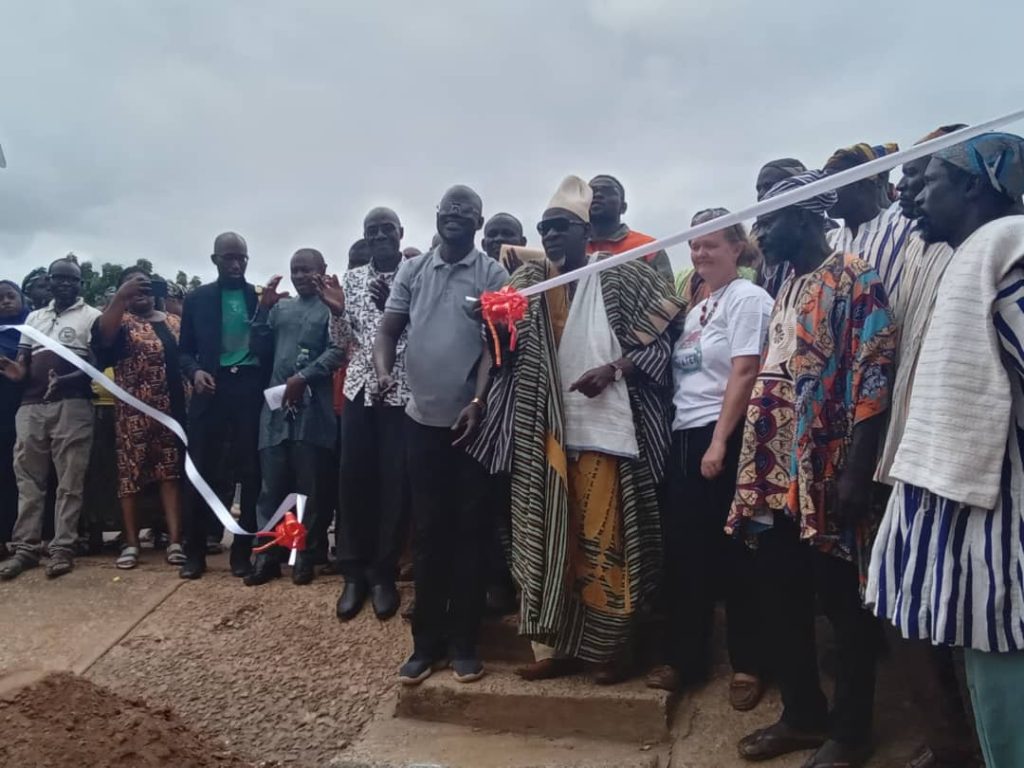By Rosemary Wayo
Nalung (N/R), July 31, GNA-A weather station has been inaugurated at Nalung, a suburb of Tamale, to provide forecast and flood alerts to residents.
It was inaugurated during a durbar to celebrate a co-production on methodologies to deliver city-level flood resilience and reduce health inequalities in sub-Sahara Africa.
It was an initiative under the “Enabling Flood Adaptation” project, funded by the British Government.
It followed multinational research by Ben Howard, Cynthia Azochiman Awuni, Abeer Arif, Frans Berkhout, Wouter Buytaert and Samuel Agyei-Mensah.
The study, in identifying challenges and opportunities related to climate change, found that six communities in Tamale were more prone to flood.
The researchers collaborated with the Nation Disaster Management Organisation (NADMO), the University of Ghana, Imperial College London, Tamale Technical University, and the University for Development Studies (UDS), to institute adaptation measures in the communities.
The communities were provided with flood-control trees to be planted in their neighbourhoods.
Madam Cynthia Azochiman Awuni, a PhD student from the University of Ghana, at the ceremony, said the project was birthed out of a bigger one dubbed: “Pathways to Equitable Healthy Cities,” and funded by the Wellcome Trust, UK.
She said the research was conducted in Tamale, because the city was expanding rapidly, and urbanisation had made land acquisition increasingly challenging.
This had led to the construction of buildings on waterways contributing to flooding in communities, saying the Nalung project served as a model of how adaptation could be done.
She said the weather station was linked to the internet, which could be accessed on flood adaptation.tamale.com and needed no special management.

Madam Awuni said the team secured funding from the Imperial College and the UK Government to establish more weather stations in all communities covered by the project.
Dr Ben Howard, a Researcher at the Department of Civil and Environmental Engineering Development, Imperial College, London, said prior to identifying the pressing challenges of the communities, there was a two-day stakeholder meeting where participants selected flooding as their priority challenge.
He said flooding could not improve without interventions, adding that climate change adversely affected the weather in Tamale and frowned on the habit of disposing of solid waste into drains, urging communities to manage flooding.
Professor Hamdiya Alhassan, a Lecturer at the Department of Applied Economics at UDS, said universities had the role of teaching, researching, and engaging with communities and indicated that the project had provided students and their respective institutions the opportunity to find solutions to community problems.
Mr Abdallah Salifu, the Northern Regional Director of NADMO advised members of the Nalung community to take good care of the facility and ensure its maintenance.
He told the durbar that even though the unit was situated at Nalung, members of the community must regard and treat it as national property.
GNA